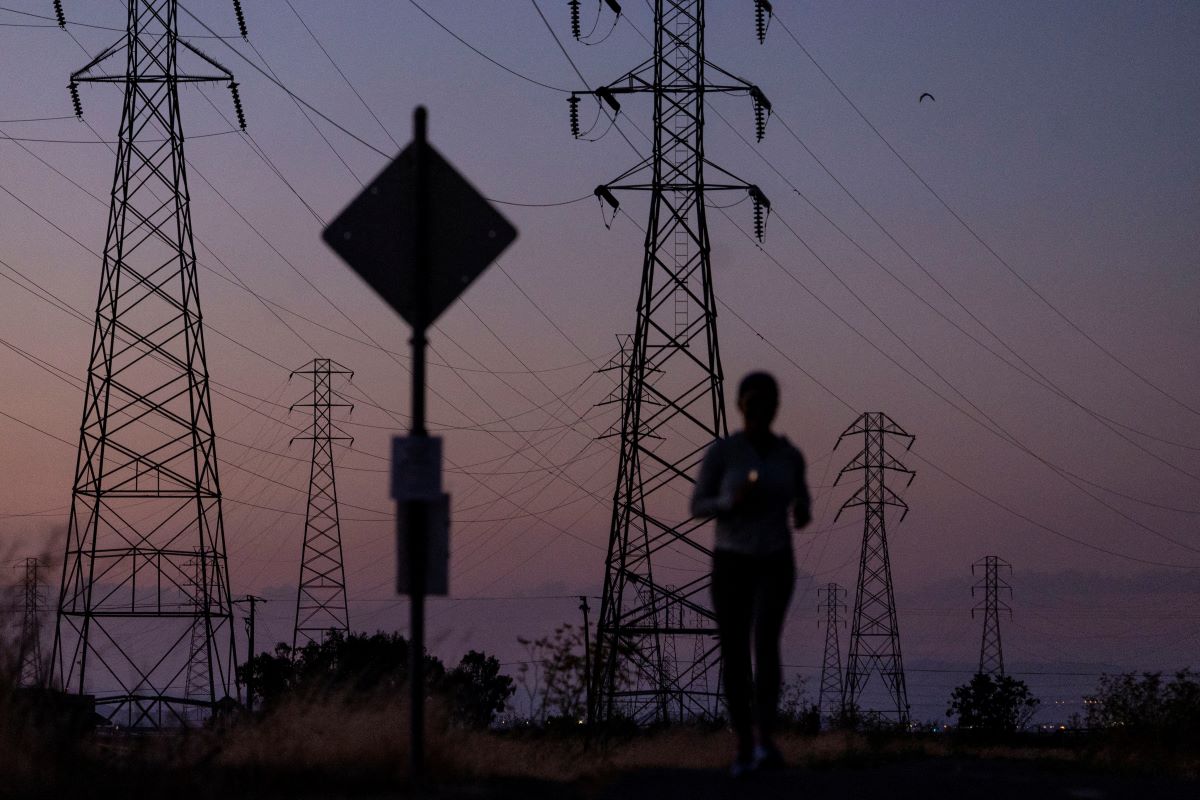 | Know better. Do better. |  | Climate. Change.News from the ground, in a warming world |
|
| | Energy independence for peopleWith rising electricity demands and more frequent and devastating wildfires, storms, and hurricanes across the world, there is a growing need to find sustainable green solutions for uninterrupted power.
Many countries are encouraging households to equip themselves with electricity-grid connected solar power that leverages batteries for backup.
Our U.S. correspondent Carey L. Biron reported this week that this model can, in fact, address bigger problems as well as providing power back-ups.
Carey spoke to Auden Schendler, a homeowner in the Colorado mountains, who is harnessing green solutions to safeguard his home against frequent power outages.
Equipped with solar energy, Schendler installed three large batteries in his garage under a new programme offered by his local utility, with the cost to be paid back over a decade.
In return, the utility, is allowed to access the energy in those batteries to feed into its network whenever it needs, and each time it does so, Schendler gets paid a fee.
That is the idea of the "virtual power plant", or VPP, which is generating excitement as a way to build resilience into the electrical grid, speed the transition to renewable power, and even offer customers a way to make money.  Workers in
stall solar panels on a home in Basalt, Colorado, in June 2022. Holy Cross Energy/Handout via Thomson Reuters Foundation |
The strategy is to harness new "smart" appliances and battery technologies, as well as household renewable-energy generation, to help consumers avoid energy use during high-intensity times, such as on particularly hot days, and even to draw energy back onto the grid as needed.
The United States currently has about 30 to 60 gigawatts of VPPs deployed. The Energy Department says capacity could triple by the end of the decade and this, it said last year, is key to meeting the country's goal of 100% clean energy by 2035.
|
Meeting green targetsEnergy experts told Carey that VPPs were seeing more interest due to sky-rocketing demand for electricity, linked to the government’s billion-dollar, climate-driven push towards electrification.
The government now wants to send a strong signal that utilities, grid operators and investors should be considering VPPs, Jennifer Downing, an engagement officer with the Energy Department's Loan Programs Office, told Carey.
These VPPs are also seen as a way for utilities and cities to meet their green targets.
For instance, in Sacramento, California, the community-owned utility aims to decarbonise the city's electricity supply by 2030, and last year undertook a VPP pilot programme "to help smooth the variable generation of renewables," Denver Hinds, principal electrical engineer with the Sacramento Municipal Utility District, told Context.
The pilot programme pays customers up to $2,500 for enrolling a residential battery in the initiative, after which they receive payments for allowing the batteries to bolster the grid.
Similarly, US cities have adopted new climate-related pledges in recent years and VPPs now offer them an additional way to progress. .JPG/640w) A woman jogs by power lines in Mountain View, California, U.S., August 17, 2022. REUTERS/Carlos Barria |
A new law in New York requires large buildings to track their carbon footprint and stay below an assigned cap, with several other cities and states taking similar steps.
These steps coupled with VPPs are helping private and public buildings reduce their use of grid electricity during peak periods.
This, Carey reported, helps in avoiding the use of fossil fuel-based power plants that have to be fired up to manage power needs during peak hours.
A key goal is to avoid using the 16 mostly gas-fired "peaker" power plants in the area that fire up during times of peak energy use, said Michel Delafontaine, director of business development at Sustainable Westchester, a municipally led group that helps local jurisdictions achieve New York state's climate goals.
"If we were to acquire 350,000 customers, which is the number of households in Westchester County," and equip them with small batteries to store power, Delafontaine said, "that would eliminate the need for a peaker plant."
If successful, VPPs could become a green power solution that other countries could adopt.
My colleague Jack is back next week and will continue to bring you climate news from around the world.
Bhasker |
|
|
|